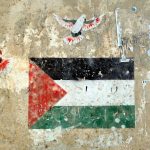
Having recovered from a bout of Covid that seemed to lay me low for well over a week, I was indeed ready to get back to doing something that took me away from the negative that can so easily creep up on one because of a recent covid sickness.
After parking the car, I strolled towards the Cancer Centre with an eagerness, in some small way, of being useful. And on the way along the busy road leading to the hospital, I was hit by the words of Henry Lawson’s poem ‘’Faces in the street.”
A middle-aged man, all but naked, lying down reading what looked to be a bible with people just passing by and pretending he was not to be seen. A ukulele played by a bedraggled middle-aged man, scantily dressed with nicotine tainted fingers plucking away dissonant cords. There were others as well along my route to the hospital with sad and joyless expressions, showing how hard life can be. We see this all too often and can be led to judge them as though they are discards from the normal. I sense that is why I always carry ambiguity with me because that is the only way I can strive for some authenticity in being honest with myself. That doesn’t mean that I always succeed.
I arrive at the hospital and upstairs I go to the 4th floor. The chemo sessions are in full swing. I take the sandwiches and drinks from the fridge and start my perambulations around the ward. There are at any one time up to 30 or more patients. And I go from patient to patient, and it is in serving that they commence their narrative. It may be in part because I have crafted a way, which I feel is not intrusive, for them to share with me. It starts of course with their gratitude and pleasure in having a tangible edible and something to sip. Oh, and by the way the bread is fresh, to nibble on!
I have learnt that life contains immense beauty, something deeply intrinsic, but it is coming through the risk we take to explore the mystery of who we are and the mystery of the one we encounter. And it is here in the encounter that vulnerability arises, and one learns, because of the condition, and what the future holds, that we learn to let go. This is all part of our exploration. We start to realise just how precious life is, but this preciousness must be found even in times of adversity where one’s life might even be at stake.
Let me start with Mary, a 66-year-old, who has cancer in the lung, the shoulder, and the bowel but she is still hanging in there with the hope she’ll still be round to continue loving and being loved by her daughter, grandchildren, and her great grandson. She became a single mum when 16 just after leaving St. Brigid’s school. She was always single but now she lives with the hope that all will be well and that she will be surrounded by love for the rest of her life.
There was Pedro lying back in bed with a young Irish lady sitting beside him. Somehow Dante’s Divine Comedy came up and we shared the experience of Virgil taking Dante from the inferno to the Purgatorio and there was met by Charon, the boatsman from Hades who led Dante into Paradisio where he linked up with Beatrix, the God figure who promised all. Here was the resting place of Love.
From this story Pedro opened about his life, his culture, the history of Italian unification under Garibaldi and then his gratitude in being in a country that he has come to love and which he calls his own and where his children have set out on their Australian saga. And then the Irish lass sharing her experience of the Connemara and Galway and then about her 6 months in Mindanao in the Southern Philippines, a place where I lived for 6 years. So, our stories continued.
After hours at the Centre, I took leave and look forward to the coming week with joyful anticipation. But another aspect of my day at the Centre is the chat I have with many of the staff and receptionists. They too are so much part of my day. The conversations I had with them made the day even more special.
I feel that the kindness patients respond to, in times of acute sickness, so readily comes to the fore. Yes, they are indeed vulnerable but in being conscious of their condition they can go about it in one of two ways.
Anger can lift it head. At times one can be rightly angry, but when in sickness it comes alive, scapegoating steers one away from acceptance. It is only in acceptance, and that does not mean acquiescence, that one can discover something very precious about themselves. It is when one finds room for acceptance and can greet themselves, it is there that we have a miracle. We answer the door to the heart, and we are greeted by our true self reflected in the mirror before us and we are at last able to welcome ourselves in. It is as though we no longer treat ourselves as strangers but rather as our authentic selves which we have sought for all our lives. We can now learn to treat ourselves with what we truly deserve. We can let go and let be. We are no longer strangers to ourselves, and we can genuinely love what before we thought was unlovable.
So back into the car I go and head back home to where I am safe, where I find love and belonging and where I know I have a certain security. But I also know that with my day at the hospital something has changed and will continue to change.
John Hill
27th February 2024





